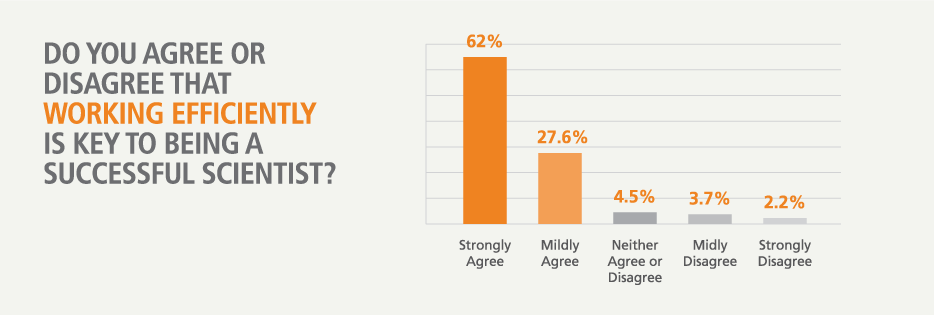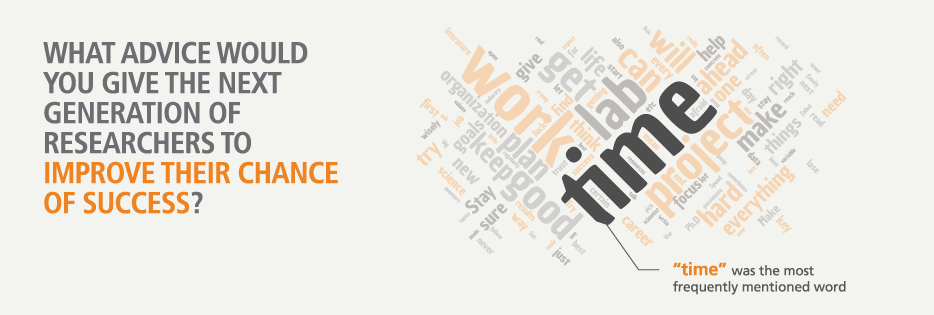The Demands of Science
Think back to the moment when you decided to pursue scientific research as a career. Many of you had the hopes and dreams to make a difference in the world, one discovery at a time. You still do. Many of you were not aware of how demanding the road to discovery truly is. Now you know. We ran a survey to understand some of the challenges of scientific research and discovered what it takes to overcome them.*
A Brief Report on the Demands of Scientific Research
Long Hours are a Part of Research
Our survey indicates that 35% of researchers work on average 50 or more hours a week. In a similar survey by Nature, 38% of their readers work more than 60 hours a week. 57% of survey respondents indicate that they work on the weekend at least every 2 weeks. In addition, 62% of respondents have spent 14 or more consecutive hours at work.

Competition is Fierce
Long hours are a part of research, but it’s just a symptom to an underlying issue. Heavy workload and fierce competition between research groups places significant pressure on researchers. 52% of respondents have had to juggle 4 or more projects at one time, and 67% have been forced to abandon a research project due to workload or limited resources. In addition, competition between research groups resulted in 53% of respondents having been scooped.

Scientists Feel Overwhelmed
The effects go beyond long hours. Scientists admit that they feel the pressure. In fact, our survey indicates that a staggering 82% of respondents sometimes feel overwhelmed at work. Additionally, 34% of respondents are dissatisfied with their work-life balance.
Working Efficiently is Key for Success
There isn’t one solution for this rampant problem, but being efficient definitely helps. 89% of survey respondents agree that working efficiently is key to being a successful scientist. Unfortunately, 27% of respondents think their lab is not efficient with the use of their time and resources. When asked what advice respondents would give to the next generation of researchers, the word that was most frequently mentioned was “time”. The answers clearly suggest that being efficient with how time is being spent is crucial to overcoming the demands of science.

“The only thing you will not be able to get back is time. Use it wisely!", says one respondent. Others say “work smart," “work efficiently in an organized way," and “work as efficiently as possible to minimize wasting time." Many of the respondents suggest that being organized and planning ahead are key components of working efficiently.

One particular respondent says that scientists need to distinguish between being present at work and being efficient at work. This advice suggests that scientists should avoid adding more hours in the lab, but instead re-evaluate whether they are using their time in the lab as effectively as possible.
A Nature survey indicates that despite these challenges, over 60% of scientists are satisfied with their careers. Scientists are generally fulfilled by their hopes and dreams to making a difference through research. As one respondent says, “Have a passion for science. Keep reminding yourself why you work hard everyday.”
*This survey resulted in a total of 273 respondents consisting of 60% academic trainees, 25% principal investigators or senior scientists, and 15% lab technicians and managers.


